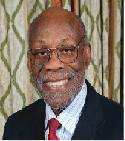Wake up Quebec!
We, Society, Must Say No to Systemic Racism and Biases Against Minorities and the Mentally Ill. Wake up Quebec! You Cannot Truly be Master in the House if You Do Not Respect and Protect All of its Members
By Dr. Clarence S. Bayne
It is my opinion that police have become society’s paid killers. Policing and military defense is a natural response of the specie to preserve and perpetuate life. But, in racialized environments, and situations where members of the specie are mentally ill, there seems to be a social license given to police to kill, as oppose to apprehend and control, members of those two classes of persons whose actions may, at the time, arbitrarily be interpreted as a threat. So a Black, mentally disturbed, man holding a screw driver in two hands is judged to be a threat. A Black child waving a toy gun in a park is shot as a threat. Obviously, what we are dealing with here are brains that are maladjusted and lack the capacity and the empathy to react in situations like these. They lack the respect for the life of what they see as aggressive threating objects. If you look at the mythology and histories that have shaped these brains, they tend to transform the victims into living things that have no souls. This profiling can only be eliminated if society, and all of its structures and interacting agencies, create and retain behavioral algorithms that exclude these responses. The last few weeks in Montreal and Quebec have produced instances (including the Saint Jean de Baptiste galley slave parade social disaster) that did not inspire hope that such adjustments were possible. I, then, received an email of hope from my friend, Kingley Gilliam, Director of BADC Communications, declaring: “We are going to hold their feet to the fire.”
Mr. Gilliam wrote, concerning the ruling and recommendations relating to the Andrew Loku case in Toronto, that: “After Four weeks of hearings and 28 witnesses, a ruling by presiding Coroner, Dr. John Carlyle, said that he had examined the evidence in the case of Andrew Loku and found no evidence of racism, nor implicit bias in the circumstances leading to the Police shooting death of Andrew Loku, and that he would not allow any questions about racism, Anti-Black Racism nor Institutional Racism to be put to the final witness, Dr. Kwame Mc Kenzie, a world renowned Psychiatrist, with over 200 publications including five books and an international consultant and expert on Implicit Bias, Anti- Black Racism and institutional Racism”.
Mr. Gilliam then goes on to say that he objected and instructed their lawyer, Selwyn Pieters, to prepare to appeal that ruling to Division Court. Selwyn stayed up all night and prepared a motion, applying for reconsideration of the ruling by the coroner. The Jury has since delivered its verdict, which was read out in the open court by the Coroner. The recommendations are very enlightening and impressive. See below for the first 26 recommendations:
JURY RECOMMENDATIONS TO THE TORONTO POLICE SERVICE:
1. Using reputable, external educators and other experts, TPS should ensure that the Service develops and implements annual/regular training at division and platoon meetings with a focus on the equitable delivery of policing services. The training should acknowledge the social inequities and challenges faced by racialized communities and consumer survivors who have experienced mental health challenges and equip officers with skills needed to provide appropriate responses and service delivery. Training topics should include, but not be limited to:
-Bias-free service delivery
-Social disparity
-Equitable outcomes for all
-Stress and fear inoculation techniques
-Mindfulness techniques
-De-escalation
-Crisis communication
-Negotiation
-Implicit bias
-Trauma informed approaches
-Anti-Black Racism
-Visible and invisible disabilities
2. Measure the effectiveness of the above mentioned training in anti-Black racism and persons in crisis by requiring both a written and oral exam of the participants. Failure in such exams should result in requiring re-attendance at such training.
3. Mandate that all officers complete the Implicit Association Test as part of initial and requalification training.
4. TPS should continue to emphasize the importance of planning in a crisis situation to identify the lead in communication.
5. Expose or continue to expose officers in training to the perspectives and lived experience of racialized communities, the Black community and individuals with mental health issues and/or addictions.
6. Review the Intercultural Development Program deployed by the Toronto Police Service and consider the continued use of the Intercultural Development Inventory or other similar tool, as well as in-house intercultural competence facilitators, to further the intercultural competence of Toronto Police Service members.
7. Amend the annual Use of Force recertification to include qualification in areas such as mental health and/or addictions, anti-racism, particularly anti-Black racism, implicit and unconscious bias, fear inoculation, de-escalation and crisis communication.
8. Continue to emphasize that where the police challenge is issued and the subject does not comply, where possible, alternative methods of communication, de-escalation, disengagement and containment should be attempted. For example, consider making it clear that lethal force will be used if commands aren’t obeyed.
9. Consider the use of trained de-briefers to be deployed following exceptional critical incidents, having regard to any SIU investigation and the rights of officers, with a view to using the knowledge gained to inform de-escalation training. If resources permit, consider using the de-briefers in situations with positive outcomes as well as negative ones, even if they are less serious incidents, in order to learn from those occurrences.
10. Make mental health and/or addictions and policing of racialized communities, in particular Toronto’s Black community, a key component of Coach Officer training.
11. Ensure that all patrol cars are equipped with less lethal weapons, e.g., CEW, sock or beanbag guns and that all officers are trained in the use of such weapons along with defensive equipment such as shields and helmets.
12. Undertake a structural/cultural review and analysis to ensure that the Service has a clear policy with respect to serving and protecting persons with mental health or addiction issues and/or racialized persons, in particular, Black persons. The Chief’s review and analysis should include input from experts in this field together with persons in the communities falling within the above-mentioned descriptors. Following this, the Chief shall clearly state the TPS policy and communicate it in detail to all officers and employees. The Chief shall ensure that all members through continuous training have a clear understanding of the Chief’s mandate in this regard. Failure to follow the Chief’s mandate should have consequences and sanctions.
13. When making decisions about promotions, supervisors should consider an officer’s skill and experience in dealing with Emotionally Disturbed Persons (EDPs), members of the Black community and racialized communities, including their ability to de-escalate and negotiate during crisis situations.
14. Encourage the Toronto Police Service to make use of the Gerstein Crisis Centre police telephone line when interacting with a person in crisis.
15. Consider additional funding and training for 911 operators in order to improve their skills in extracting more pertinant information during an emergency call. Consider beginning the de-escalation process during a 911 call.
TO THE TORONTO POLICE SERVICE BOARD:
16. Maintain its existing committee on mental health in ongoing partnership with members of the mental health community (throughout this document, ‘mental health community’ means to include the phrase in particular people who have been directly affected by mental health issues), the Toronto Police Service and subject matter experts.
17. Establish a new committee to consider possible or identified disparities in services and outcomes for racialized persons and consider interventions to address any such disparities. The committee should include representatives of the Toronto Police Service, subject matter experts and members of racialized communities, including the Black community. The committee should consider the intersectionality of mental health and race both in terms of member composition and issues to be addressed.
18. Conduct a pilot study of two divisions (preferably 14 and 51 division) where there would be more intensive community involvement, education, and training (keeping in mind resourcing) concerning interactions with people who have racial and/or mental health and/or addiction differences to determine whether this has a positive impact on reducing ‘use of force’ incidents.
TO THE CANADIAN MENTAL HEALTH ASSOCIATION (CMHA-TORONTO BRANCH):
19. Offer education to the appropriate building superintendents and managers on information sharing policies; in particular, what sort of information ought to be shared with CMHA (Toronto Branch) housing or support workers about CMHA (Toronto Branch) residential clients. In addition, it should deliver in-service training on how to better serve these clients.
20. Together with Across Boundaries study ways of ensuring that clients are able to access the services that they require across multiple agencies so that clients don’t ‘fall through the cracks’.
TO THE MINISTRY OF HEALTH AND LONG TERM CARE/LHIN’s:
21. Fund a province-wide telephone crisis support line staffed by people trained in crisis intervention or peer support to be available to clients in supportive housing and community mental health and addiction programs, 24 hours a day, 7 days per week.
22. Provide additional funding for a sufficient number of nurses to staff Mobile Crisis Intervention Teams (MCIT) in Toronto, 24 hours a day in each police division.
23. Together with the Toronto Police Service, explore all possible avenues to assess whether MCITs could be Not Official Verdict
24. Fund and create a program to provide appropriate housing support to individuals suffering from noise sensitivity.
TO THE MINISTRY OF COMMUNITY SAFETY AND CORRECTIONAL SERVICE:
25. Using a research based approach, update provincial standards for de-escalation, crisis communication and biasfree police training.
26. Provide funding to research and establish appropriate benchmarks for measuring effectiveness and outcomes of current police response to persons in crisis.
For full document go to: http://s3.documentcloud.org/documents/3883244/Andrew-Loku-Verdict-of-Coroners-Jury.pdf
For Full Version of Semaji June 2017 Click Here




